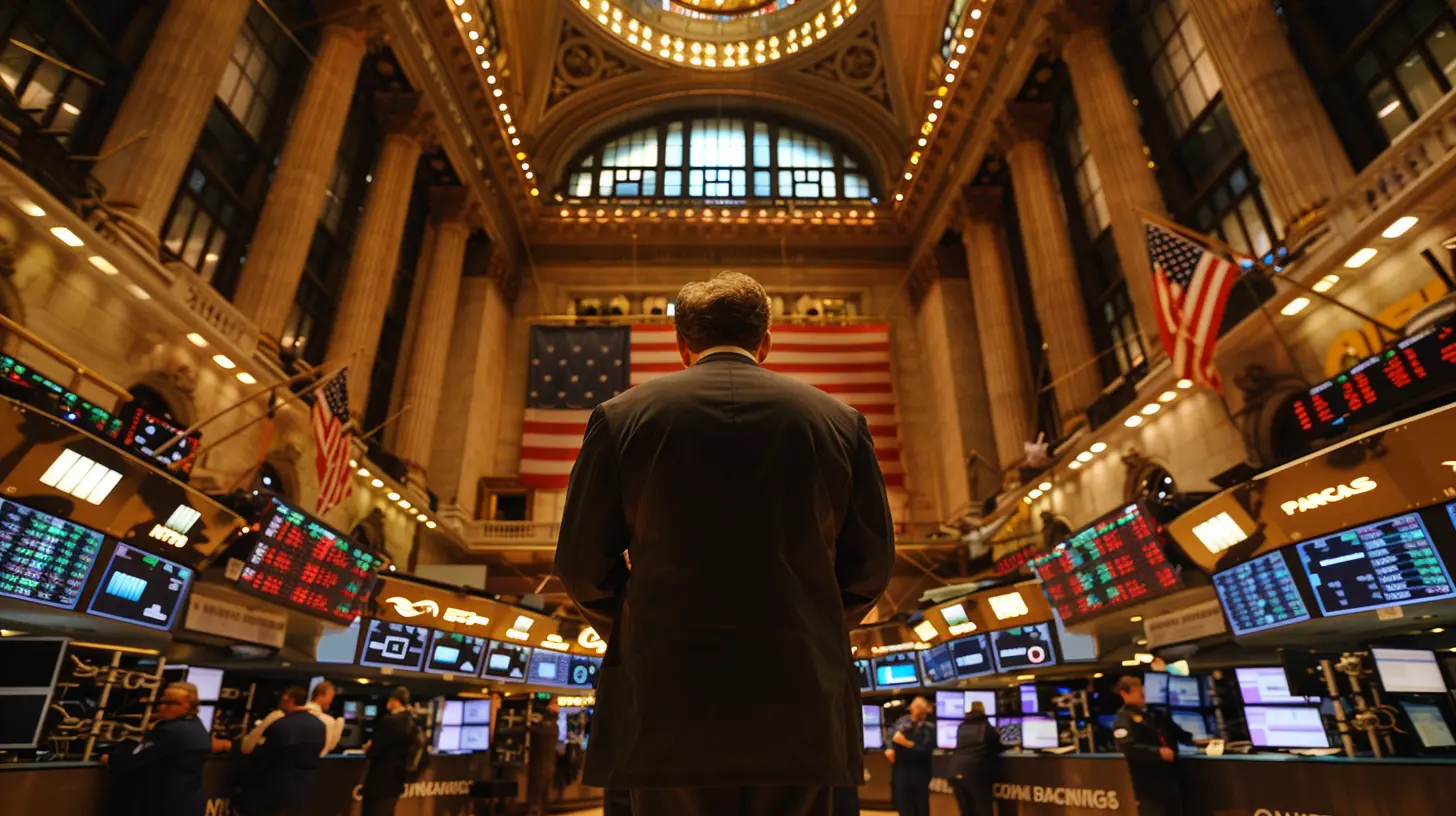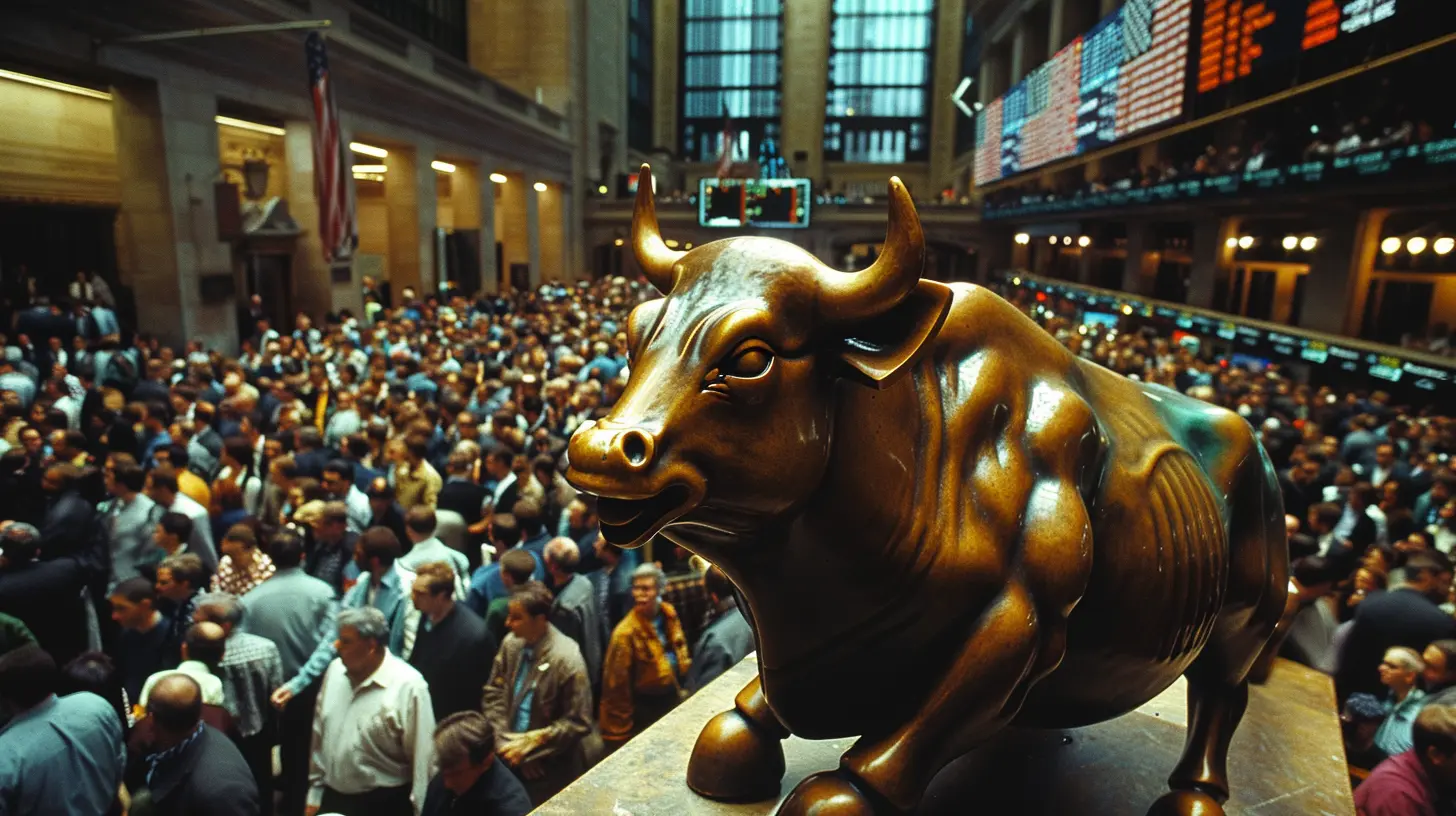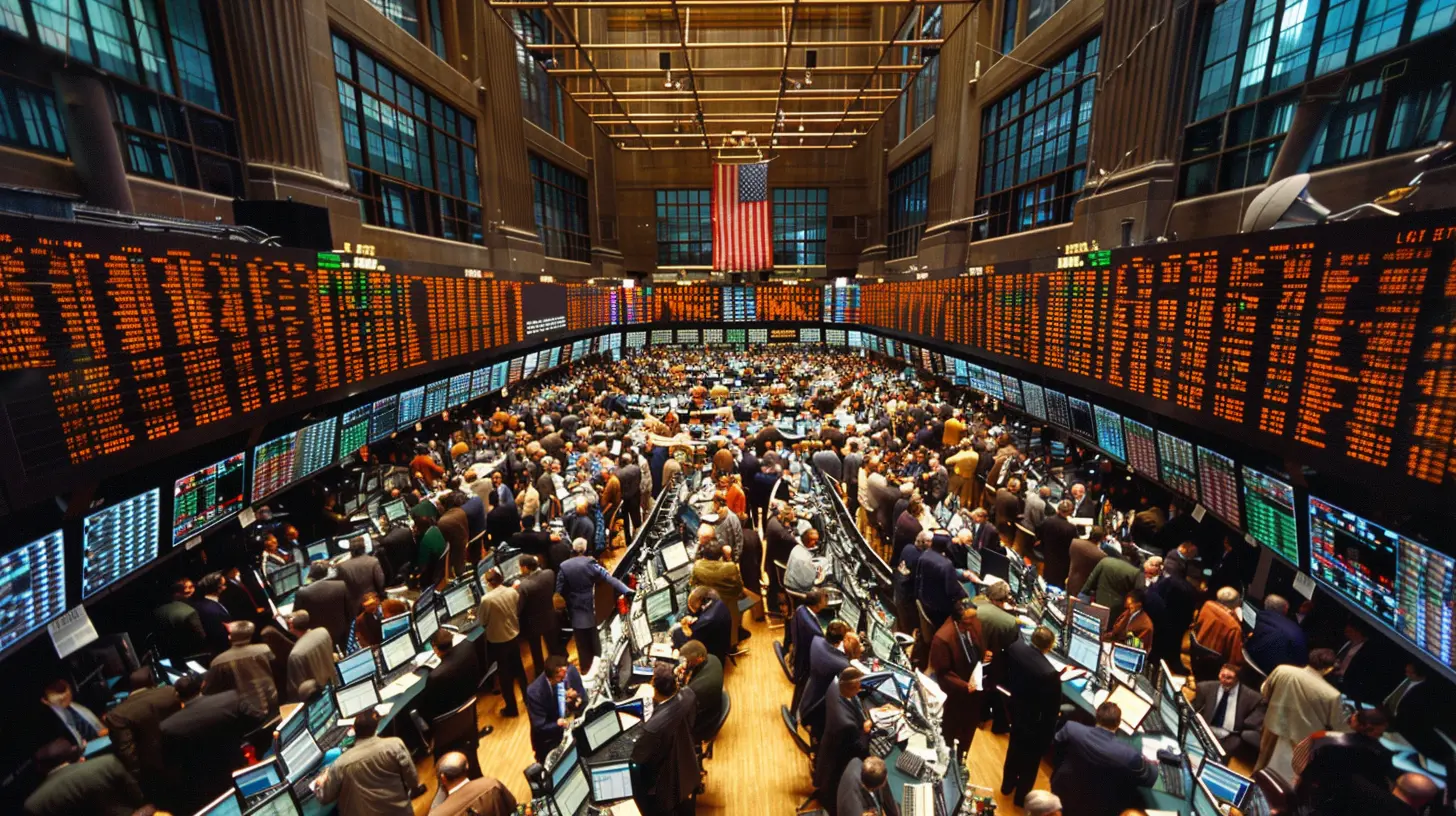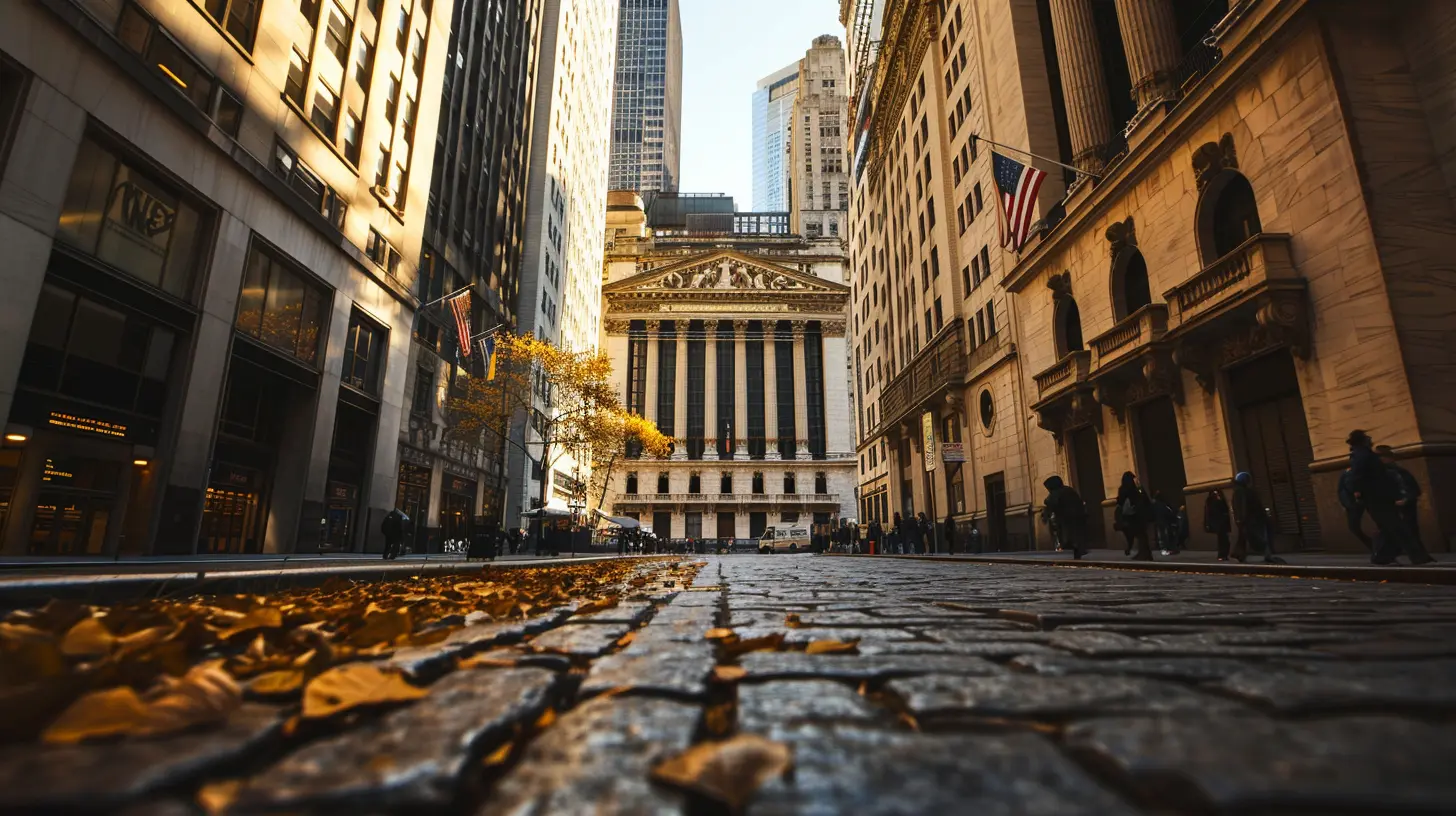The Role of Economic Events in Day Trading
7 September 2025
Ah, day trading—the financial equivalent of drinking five espressos in a row and hoping you don’t have a heart attack. Some people call it an art, some call it gambling, and others (usually those who lost their life savings) call it a scam.
In reality, day trading is a game of speed, strategy, and, most importantly, awareness. And if you’re not paying attention to economic events, well, let’s just say the market will happily take your money and wave goodbye.
So, what’s the big deal with economic events? Why do traders worship at the altar of interest rate decisions, GDP reports, and job numbers? Buckle up, because we’re diving deep into the chaotic world of economic events and how they can make—or break—a day trader’s profits. 
What Are Economic Events, and Why Should You Care?
Let’s start with the basics. Economic events are scheduled releases of financial and economic data—kind of like a reality TV show, but instead of watching housewives throw drinks, you're watching numbers decide your trading fate.These reports reflect the health of an economy, influence investor sentiment, and—here’s the kicker—cause wild price swings in the stock, forex, and commodities markets. If you're day trading without keeping an ear to the ground on these events, you might as well be playing darts blindfolded.
Some major economic events to watch include:
- Federal Reserve meetings (aka, "Will they raise interest rates and ruin the markets?")
- GDP reports (because knowing if an economy is growing or shrinking is kind of important)
- Employment reports (aka, "Are people getting hired, or is everyone still unemployed and binge-watching Netflix?")
- Consumer confidence reports (because whether people are spending money or hoarding it under mattresses matters)
These events can send shockwaves through the market faster than Elon Musk tweeting about Dogecoin. 
How Economic Events Influence Market Volatility
Remember when you were a kid, and someone shook up a soda bottle before handing it to you? That's exactly what an economic event does to the market—it builds pressure and then BOOM! Prices explode, and traders either cash in or cry themselves to sleep.1. The Market Loves Surprises (But Do You?)
Markets react to economic data in one of two ways:- If the data is expected, prices may adjust gradually. Yawn.
- If the data surprises everyone, prices can swing wildly, wiping out unprepared traders in seconds.
For example, if the U.S. jobs report comes in way better than expected, the stock market might rally. But if it’s worse? Well, let’s just say traders will be scrambling like someone who just realized they left the stove on.
2. Interest Rate Decisions – The Market’s Ultimate Mood Swing
If there’s one thing markets are obsessed with, it’s interest rates. Anytime the Federal Reserve, the European Central Bank, or any major central bank makes an announcement, traders hold their breath like kids waiting to see if Santa brought them presents or coal.- Rate hikes: Usually bad for stocks, great for the U.S. dollar, and a nightmare for anyone holding loans.
- Rate cuts: Typically boost stocks but can signal economic trouble ahead.
Day traders often get whiplash from trading interest rate announcements. A single word from a central bank official can send prices flying in either direction.
3. Inflation Reports – The Silent Market Killer
Let’s be real—nobody likes inflation, except maybe gold investors and conspiracy theorists hoarding canned beans. Inflation reports, such as the Consumer Price Index (CPI), tell us how much prices are rising.- Higher-than-expected inflation? The market panics, expecting interest rate hikes.
- Lower-than-expected inflation? Stocks celebrate like they just won the lottery.
If you’re day trading during an inflation announcement, expect price swings so wild they could make a roller coaster look tame. 
How Day Traders Use Economic Events to Their Advantage
Alright, now that we’ve established that economic events make the market go haywire, how can traders actually use them to make money instead of losing their shirts?1. The "Fade the News" Strategy
Ever notice how sometimes the market moves in one direction right after an economic event, only to completely reverse a few minutes later? That’s because initial reactions are often fueled by emotional traders jumping the gun.Savvy day traders wait for the knee-jerk reaction, then trade against it once the dust settles. It’s like waiting for someone to overreact at a family dinner before stepping in with the voice of reason.
2. The Breakout Strategy
Economic events can push prices past key support and resistance levels, creating breakout opportunities. If a stock has been bouncing between $50 and $55 for weeks, a strong economic report could send it soaring past $55, giving traders a juicy entry point.Think of it like a caged animal finally breaking free—once it’s out, it’s running wild.
3. Liquidity and Timing – Because No One Likes a Slow Market
During major economic events, liquidity (how easily you can buy/sell assets) spikes. This means tighter spreads and more trading opportunities. But beware—trading right before an announcement is like standing in the middle of a battlefield before the first shot is fired.Most experienced traders wait until the data is released and the market reveals its true direction before making a move. 
The Biggest Mistakes Traders Make with Economic Events
Now that you know how to trade economic events, let’s talk about what not to do—because let’s face it, most traders learn things the hard way.1. Ignoring the Event Calendar
If you don’t know when major economic reports are released, you’re asking for trouble. Imagine driving blindfolded—it won’t end well. Always check the economic calendar before trading.2. Trading Without a Plan
Going into an economic event without a strategy is like walking into a casino and betting your rent money on red. Sure, you might make a profit, but you’re just as likely to blow up your account.3. Overleveraging – The Fastest Way to Go Broke
High volatility means massive price swings. If you’re trading with too much leverage (borrowed money), one bad move can wipe you out faster than you can say "margin call." Trade wisely, or the market will take everything—plus interest.Final Thoughts: Economic Events Are a Trader’s Best Frenemy
Economic events are the lifeblood of day trading. They create volatility, drive price movements, and make things… well, interesting. But if you’re not careful, they can also be the reason your trading account goes up in flames.So, do yourself a favor: study the economic calendar, have a strategy, and for the love of all things holy—don’t trade right before a major announcement unless you enjoy unnecessary stress.
Now, go forth and trade wisely (or at least try to).
all images in this post were generated using AI tools
Category:
Day Trading BasicsAuthor:

Zavier Larsen
Discussion
rate this article
1 comments
Gabriel Frye
This article effectively highlights how economic events can significantly influence day trading strategies. Understanding market reactions to these events is crucial for traders aiming for success in a volatile environment.
September 17, 2025 at 11:23 AM

Zavier Larsen
Thank you for your insightful comment! I'm glad you found the article highlights the importance of understanding economic events in shaping day trading strategies.


